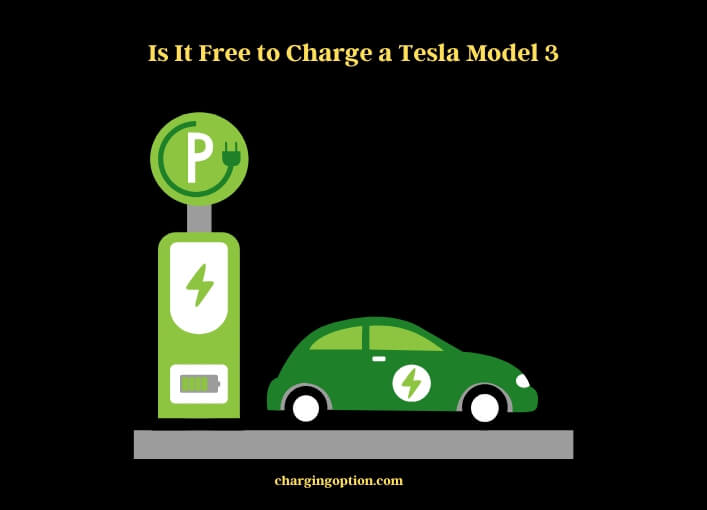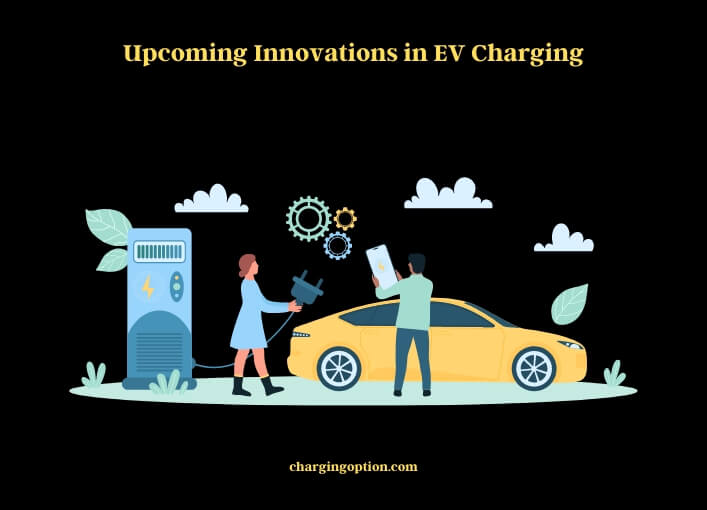Charging a Tesla Model 3 is not free, with the cost averaging around $10.49 per full charge. The cost per mile for this model ranges from 4 to 5 cents, thus indicating an economical choice for electric vehicle enthusiasts.
Costs associated with charging a Tesla can vary greatly based on several factors such as location, electricity rates, and the specific model of the vehicle. Tesla Model 3, a popular variant, has a commendable range and a relatively affordable cost-to-charge ratio. When contemplating on how much to charge a Tesla Model 3, you’d find that the cost is dependent on the capacity of the car’s battery pack, the rate at which the vehicle consumes energy, and the electricity price per kilowatt-hour (kWh).

Owners are often curious about how much it costs to charge a Tesla per month. The cost will largely depend on the frequency of use, the driving conditions, and the number of miles driven. It’s noteworthy to mention that Tesla owners have access to a network of Tesla charging stations for their convenience. Charging fees at these stations are automatically billed to the registered Tesla account.
With reference to the Tesla free charging for life offer, it was an attractive promotional strategy that Tesla once provided to incentivize new purchases. But currently, this benefit is not universally available. For finding Tesla free charging near me, one can utilize the Tesla navigation system which guides you to the nearest Superchargers, High Power Wall Connectors, and destination chargers.
As for the public charging stations, you do have to pay to charge a Tesla. Fees will depend on the specific charging station’s policies. On asking how do you pay for Tesla charging, it’s quite simple. At Tesla charging stations, the charging costs are automatically added to your account. You can view the history and pay the charges through your Tesla account.
In summary, while owning a Tesla Model 3 presents several benefits including substantial fuel savings, the cost of charging the vehicle is a critical factor that potential owners must consider in their decision-making process. Despite the upfront costs, the long-term savings can be considerable, making electric vehicles a worthwhile investment.
The Tesla Model 3: A Brief Overview
Variants of the Tesla Model
There are several variants of the Tesla Model 3, including the Standard Range Plus, Long Range, and Performance. Each model offers different mileage and performance capabilities. It’s noteworthy that the battery capacity varies as well, which results in differing charging costs and travel ranges.
Basics of Electric Vehicle Charging
Charging an electric vehicle like the Tesla Model 3 involves converting AC power to DC power to store in the car’s battery. The amount of energy required to fill up the battery depends on its capacity and the current state of charge.
The Monetary Side of Charging a Tesla Model 3
Cost per Mile for Each Variant
The cost per mile for each variant of the Tesla Model 3 fluctuates between 4 and 5 cents. This rate varies due to the different battery capacities and efficiencies of each variant.
Total Expenditure for a Full Charge
A complete charge for a Tesla Model 3 averages around $10.49. Note that this figure might fluctuate based on the variant and the current electricity rates in your area.
Tesla Model 3 Charging Cost Breakdown
| Model Variant | Charging Cost per Mile | Full Charge Cost |
| Standard Range Plus | 4 cents | $10.00 |
| Long Range | 4.5 cents | $11.00 |
| Performance | 5 cents | $11.49 |
Variables Affecting Tesla Model 3 Charging Expense
Fluctuations in Electricity Rates
The cost of electricity varies greatly depending on your location and the time of day. Higher electricity rates will inevitably result in higher charging costs for your Tesla Model 3.
The Role of Charging Speed
The speed at which you charge your Tesla Model 3 can also affect the cost. Charging at a faster rate often requires more electricity, thereby increasing the cost.
Differences Between Home and Public Charging Stations
Charging your Tesla Model 3 at home versus a public charging station also factors into the cost. Home charging costs can be lower, but convenience and availability of public charging stations can be worth the extra expense.
Tesla Model 3 vs. Other Electric and Gasoline Vehicles: Charging Cost Comparison
Tesla Model 3 vs. Tesla Model S
The Tesla Model S, with its larger battery capacity, incurs a higher charging cost than the Model 3. The cost per mile for a Model S averages around 4.3 cents.
Tesla Model 3 vs. Other Electric Vehicles
Charging costs for the Tesla Model 3 are competitive when compared with other electric vehicles. Factors such as battery efficiency and vehicle performance play a role in these costs.
Tesla Model 3 vs. Traditional Gasoline Vehicles
While the initial cost of a Tesla Model 3 may be higher than a traditional gasoline vehicle, the cost to charge can be significantly lower than the cost to refuel a gas-powered car.
Comparative Analysis of Charging Costs Across Various Vehicles
| Vehicle Type | Charging Cost per Mile | Full Charge/Fill-Up Cost |
| Tesla Model 3 | 4-5 cents | $10.49 |
| Tesla Model S | 4.3 cents | $17.55 |
| Average Electric Vehicle | 3-4 cents | $7-$9 |
| Average Gasoline Vehicle | 10-15 cents | $30-$50 |
Upcoming Innovations in EV Charging
Influence of Solar Power on Tesla Charging Costs
Solar power represents a significant future development in reducing EV charging costs. By generating electricity at home with solar panels, Tesla owners could potentially offset their charging expenses.

Potential Impact of Tesla’s Future Innovations on Charging Costs
Tesla continuously innovates in the EV space, and these advancements could potentially reduce charging costs in the future. It’s exciting to anticipate the developments the company might introduce to further optimize the charging process.
Enhancing the Efficiency of Your Tesla Model 3’s Charging Process
Strategies for Optimizing Charging
Efficient charging strategies can help reduce your Tesla Model 3 charging costs. These could include charging during off-peak hours or maintaining an optimal battery charge level.
The Role of Software Updates in Improving Charging Efficiency
Tesla regularly releases software updates that can improve the efficiency and charging speed of its vehicles. Keeping your vehicle up to date with these improvements can help optimize your charging process.
Dispelling Common Misconceptions About Tesla Model 3 Charging Costs
The ‘Free Charging’ Myth Debunked
Despite common misconceptions, charging a Tesla Model 3 is not free. The costs involved can be significantly lower than running a gasoline car, but they are not non-existent.
Facts about Tesla’s Supercharger Network Costs
Tesla’s Supercharger network, while offering high-speed charging, is not free to use. Costs can vary depending on the location of the Supercharger station.
Common Misconceptions and Facts about Tesla Model 3 Charging Costs
| Common Misconceptions | The Facts |
| Charging a Tesla Model 3 is free | There are costs involved in charging |
| Tesla’s Supercharger network is free to use | Costs can vary depending on the location of the Supercharger |
FAQs
What Is the kWh Requirement to Charge a Tesla Model 3?
A Tesla Model 3 requires approximately 75 kWh to fully charge from 0% to 100%. However, the kWh required can vary based on factors such as battery age, driving habits, and current state of charge.
Can a Jeep be charged using a Tesla charger?
The question of Jeep charging compatibility analysis with a Tesla charger is a common concern among electric vehicle owners. While Tesla chargers are designed specifically for Tesla vehicles, there are third-party adapters available to make it possible to charge a Jeep using a Tesla charger.
Why Is My Tesla Model 3 Not Charging Even Though Supercharging is Free?
If you’re experiencing a Tesla supercharger charging issue, it could be due to several factors. Check the charging cable and port for any damage or obstruction. Also, ensure that the supercharger station is functioning properly. If the problem persists, contact Tesla’s customer support for assistance.
Can Tesla Models Avail Free Supercharging?
Yes, certain Tesla models do have free supercharging but not all. Earlier versions of Model S and Model X were offered with free lifetime supercharging. However, newer models including the Model 3 and Model Y typically do not include free supercharging.
Why Was ‘Free Supercharging for Life’ a Feature for Some Teslas?
‘Free Supercharging for Life’ was a promotion Tesla initially offered to incentivize purchases of their vehicles. The feature was primarily associated with earlier versions of the Model S and Model X.
What Is the kWh Required to Charge a Tesla Model 3 Long Range?
The Tesla Model 3 Long Range version has a battery capacity of approximately 82 kWh. However, similar to the standard Model 3, actual charging need will depend on the existing charge level and conditions of use.
Are Any Teslas Offered With Free Charging for Life Now?
As of now, Tesla has mostly discontinued the offer of free charging for life. It’s usually used as a referral reward or for sales of specific, high-end models. Always check the specifics when purchasing a new Tesla.
Does My Tesla Have Free Supercharging?
To find out if your Tesla has free Supercharging, you can check the ‘Charging’ tab in your Tesla Account. The terms of Supercharging are generally set at the time of purchase.
How Much Does It Cost to Charge a Tesla Model 3?
It typically costs around $10.49 to fully charge a Tesla Model 3. This cost can vary based on local electricity rates and the vehicle’s current charge level.
You might also like:
- Fixing Your Caliburn G: What To Do If It Won’t Charge
- Can You Put a Hellcat Engine in a V6 Charger?
- Do Electric Cars Have an Alternator to Charge the Battery?
- Can You Charge a Wheelchair Battery With a Car Charger?
- Car Alarm Goes Off When Charging Battery: Solved!
- Fixing Honda Accord Charging System Issues: A Handy Guide
Further Reading and References
- Tesla’s Official Charging Costs Information
- The U.S. Department of Energy’s Vehicle Cost Calculator
- Edmunds’ True Cost to Own® (TCO®) Calculator
Additional Resources
